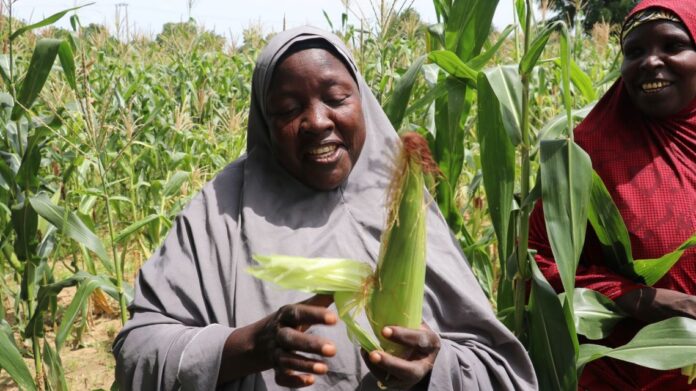The Minister of Industry Trade and Investment, Mrs Mariam Katagum, has called for equal access to women to fully harness their potential and contribute to the economic development of Nigeria.
Katagum said this while presenting a paper on Women in Economic
Development Commerce and Industry at Nigeria at 60 exhibition of
Made-in-Nigeria products on Saturday in Abuja.
The minister, who noted that women played major role in domestic labour crucial in economic development, decried their being undervalued and
unprotected.
She said: “this is usually the case because it is extremely difficult to measure the economic and social value of their contributions’’.
Katagum noted that many of the jobs that women do tend to be low-skilled with high exposure to health hazards.
She added that women make up 30 per cent of the global industrial
workforce according to United Nations Industrial Development
Organisation (UNIDO)
According to her, history has it that women have played various roles
as economic actors, food gatherers and processors in ancient societies
to providing substantial portions of farm labour in traditional
societies.
“There are six key areas concerning women in economic development,
commerce and industry which include: extent of women’s participation,
challenges that women experience and why women are needed in this
space.
“According to the United Nations (UN), for women aged 15 years and
older, labour force participation rate is only 48.5 per cent in
comparison to 75 per cent for men of the same age.
“The difference becomes understandable when one considers the fact
that there are 104 economies in the world that have laws prohibiting
women from working in selected industries.
“Such restrictions are extremely harmful to job creation for women
and lead to wealth or income gaps between men and women.
“Women’s economic impact in Nigeria has been crucial to our
development. In addition to providing almost all domestic labour,
Nigerian women account for 75 per cent of our farming population
according to the Federal Ministry of Agriculture and Rural Development
(FMARD).
“And as a nation that has increased its focus on agriculture, women
empowerment is essential towards our development,” she emphasised.
She further said that studies by PricewaterhouseCoopers, noted that 23
million Nigerian women own 41 per cent of Nigeria’s micro-businesses
attributed to strong entrepreneurial spirit of Nigerian women.
“That resulted to Nigeria ranking one of the highest global
entrepreneurship rates for women,’’ she added.
Katagum emphasised that more work was required to bridge the gap for
women’s participation in business, stressing that formal sector was an
apparent split between both genders.




